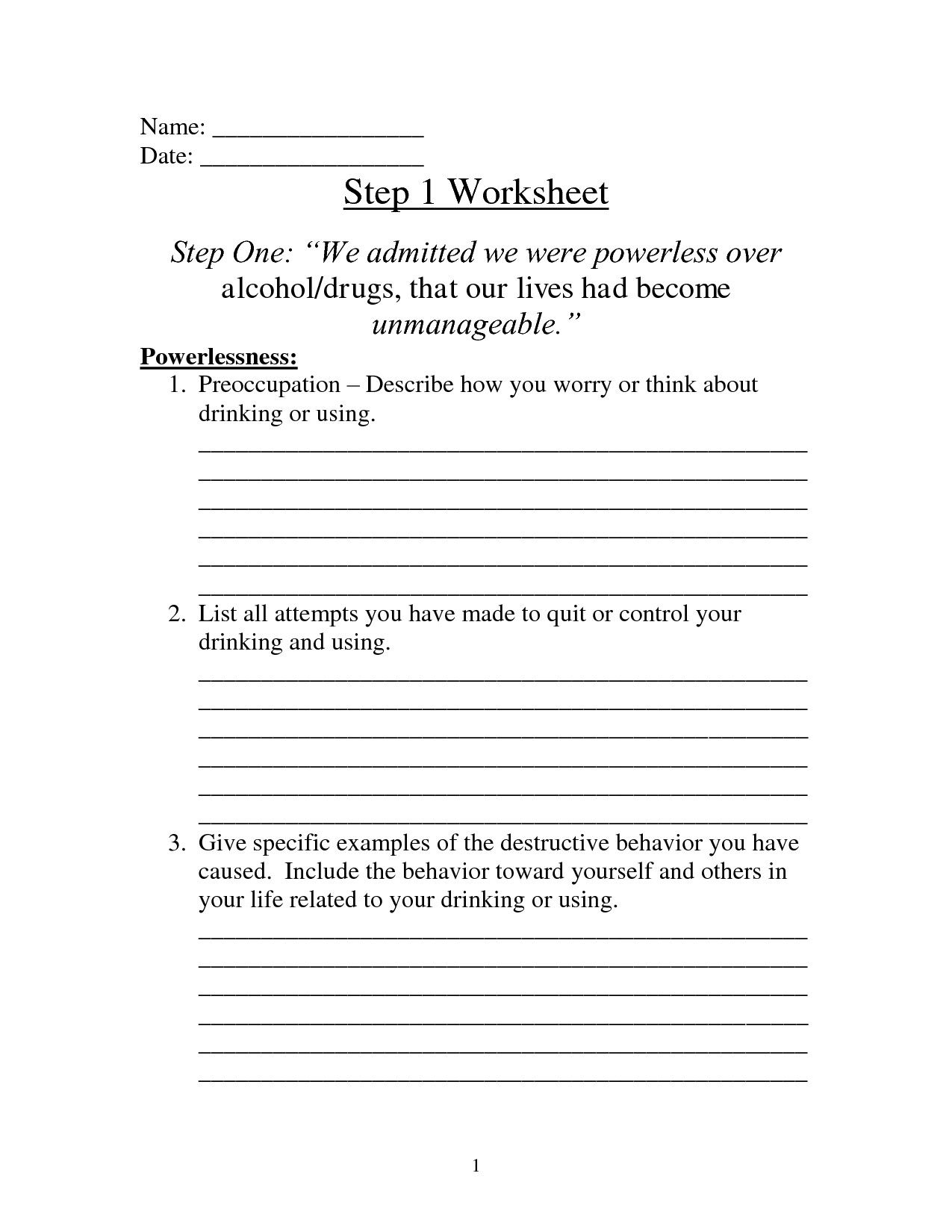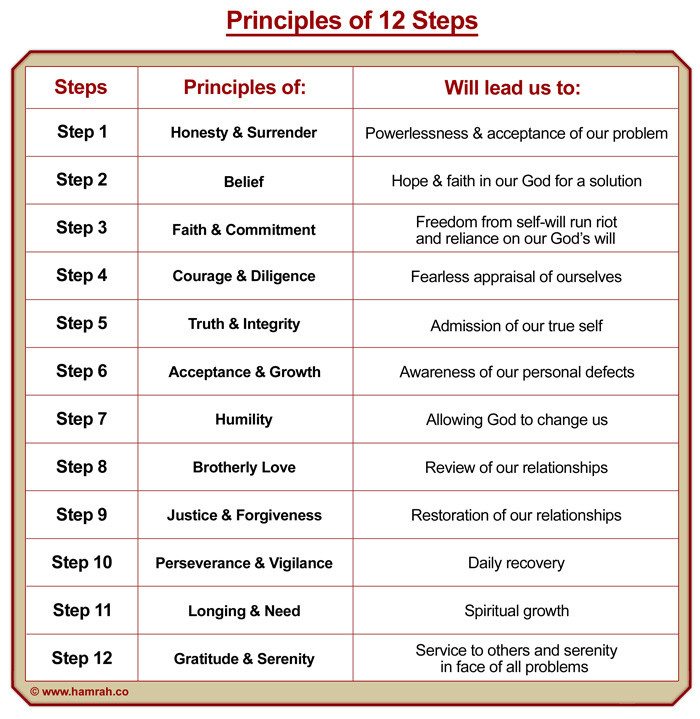5 Essential Steps for AA Step One Worksheet

Embarking on the journey of recovery through Alcoholics Anonymous (AA) can be transformative, and it all starts with acknowledging the very first step: admitting powerlessness over alcohol. This admission isn't just about recognizing a problem; it's about embracing a new beginning, a chance to rewrite one's story. Here, we'll explore five essential steps to navigate the complexities of the AA Step One Worksheet, which is crucial for beginning your recovery process with clarity and commitment.
The Fundamentals of AA Step One

The first step of AA, often referred to as "Step One," is about admitting that:
- Alcohol has caused negative consequences in one's life.
- There is a lack of control over alcohol consumption.
This step is designed to break through denial, foster honesty, and lay the foundation for recovery. The worksheet associated with Step One helps individuals reflect on their relationship with alcohol in a structured manner.
Step 1: Reflect on Your Relationship with Alcohol


The first action is to reflect on how alcohol has impacted your life. Use these questions to guide your introspection:
- When did my drinking become problematic?
- What incidents or changes in behavior can be attributed to alcohol?
- How has my drinking affected relationships, work, and personal wellbeing?
Take time to write down these moments, as they will highlight the progression of your problem with alcohol.
Step 2: Understand Powerlessness

Realize that despite attempts to control or moderate your drinking, you've likely experienced:
- Failed resolutions to cut down or quit.
- Drinking more than intended.
- Promising not to drink again but failing.
Writing about these experiences can solidify the understanding of your powerlessness over alcohol.
Step 3: Identify Unmanageability

Detail how your life has become unmanageable due to alcohol:
- Financial troubles.
- Health issues or medical concerns.
- Social isolation or strained relationships.
These are vital points to consider, as they underscore the severity of the issue.
Step 4: Acknowledge the Need for Help

Acceptance of your powerlessness and the unmanageability of your life leads to:
- An understanding that you cannot control your drinking alone.
- A need to seek external support for recovery.
Include thoughts on reaching out, whether through AA meetings, therapy, or support from loved ones.
Step 5: Commitment to Change

Finally, make a commitment to:
- Admit the problem and seek recovery.
- Attend meetings regularly.
- Engage in honest self-reflection.
Your worksheet should include a plan for what recovery will look like moving forward.
💡 Note: It’s beneficial to be as truthful as possible. This exercise isn't just about acknowledging what's gone wrong; it's about taking responsibility and choosing a path to wellness.
In wrapping up your journey through the AA Step One Worksheet, it's worth reiterating how crucial this first step is in the recovery process. The insights gained, the reflections documented, and the commitments made are more than just ink on paper; they are stepping stones to a new life free from the chains of alcohol dependency. They teach us that recovery begins with accepting where we are now to reach where we desire to be. The insights and commitments you've outlined not only empower you but also prepare you for the subsequent steps of AA, each building upon the last to provide a comprehensive framework for lasting sobriety.
Why is it important to use the Step One Worksheet?

+
Using the Step One Worksheet allows for structured introspection, helping individuals break through denial and acknowledge the impact of alcohol on their lives. It’s a critical step in recognizing the need for recovery.
Can I complete the Step One Worksheet on my own?

+
While it’s possible to fill out the worksheet alone, it’s often beneficial to discuss your reflections with a sponsor or in an AA meeting for additional support and perspective.
What should I do if I find Step One challenging?

+
Difficulty with Step One is common. Consider talking to others in recovery, seeking therapy, or attending more AA meetings to build support and gain insight into the process.